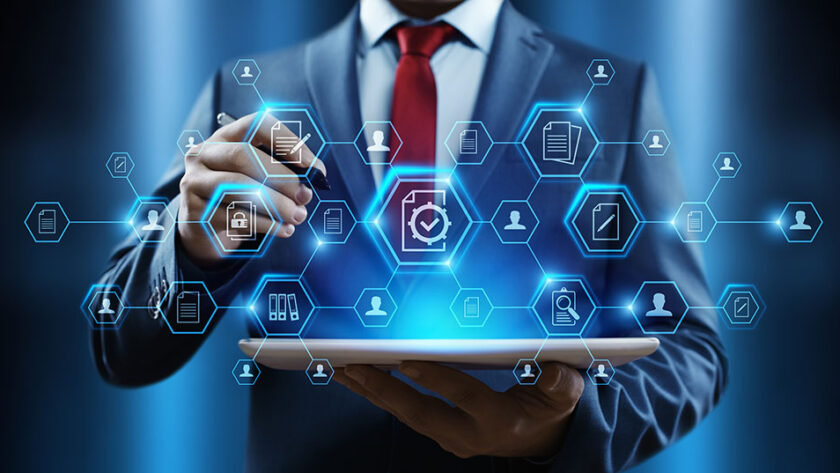The pace of technological innovation has accelerated over the past decade, and the coming years promise even greater transformations. In 2025, technology will continue to reshape industries, enhance consumer experiences, and create new possibilities across sectors. From AI-driven solutions to the widespread adoption of blockchain, here’s a closer look at the top technology trends to expect in 2025.
1. Artificial Intelligence (AI) and Machine Learning
AI has already made significant strides in sectors such as healthcare, finance, and marketing, and it is only going to become more ingrained in our daily lives in 2025.
- Smarter AI Applications: AI systems will become increasingly intelligent, capable of solving complex problems in real time. Machine learning algorithms will improve decision-making processes, enabling businesses to automate tasks, personalize customer experiences, and predict future trends with greater accuracy.
- AI-Powered Virtual Assistants: Virtual assistants will evolve to understand more complex commands and perform advanced tasks. These assistants will become more integrated into our personal and professional lives, functioning seamlessly with other smart devices.
2. Blockchain and Decentralized Technologies
Blockchain has been a buzzword for years, but in 2025, its full potential will begin to unfold.
- Beyond Cryptocurrencies: While blockchain is best known for powering cryptocurrencies, its applications extend far beyond digital currencies. Blockchain will revolutionize industries like supply chain management, healthcare, and finance by providing secure, transparent, and immutable records.
- Smart Contracts: Smart contracts, which automatically execute agreements when certain conditions are met, will see wider adoption. These contracts will increase the efficiency and security of transactions, reducing the need for intermediaries.
3. Quantum Computing
Quantum computing, once a futuristic concept, is poised to make real-world impacts by 2025.
- Revolutionizing Problem-Solving: Quantum computers have the potential to solve complex problems that classical computers cannot, from drug discovery to optimization problems in logistics. They will pave the way for breakthroughs in fields like material science and cryptography.
- Industry-Specific Applications: As quantum technology matures, industries like pharmaceuticals, energy, and artificial intelligence will leverage quantum computing to tackle some of the world’s most challenging issues.
4. 5G Technology: Transforming Connectivity
5G networks are expected to bring about significant changes in how we connect, communicate, and interact with devices.
- Faster Speeds and Lower Latency: With 5G, internet speeds will increase dramatically, and latency will decrease, making real-time communication and data transfer more efficient. This will unlock new possibilities in areas like gaming, virtual reality (VR), and autonomous vehicles.
- IoT Connectivity: 5G will enable a new era of connected devices, powering the growth of the Internet of Things (IoT). Smart homes, smart cities, and autonomous systems will rely on this fast and stable connectivity to function optimally.
5. Augmented Reality (AR) and Virtual Reality (VR)
AR and VR technologies are rapidly evolving and will become mainstream in 2025.
- AR for Retail and E-Commerce: Retailers will use augmented reality to enhance the shopping experience. Consumers will be able to try on clothes virtually, visualize furniture in their homes, or interact with products in innovative ways before purchasing.
- VR in Education and Training: Virtual reality will be used more extensively in education and training, providing immersive learning experiences that allow users to practice real-world scenarios in a controlled, virtual environment.
6. Robotics and Automation
Robots and automation technologies are expected to have a profound impact on various industries by 2025.
- Robotic Process Automation (RPA): In business operations, RPA will automate repetitive, time-consuming tasks such as data entry, document processing, and customer support, increasing efficiency and reducing human error.
- Robotics in Manufacturing and Healthcare: Robots will be deployed more widely in manufacturing and healthcare to perform complex tasks. In healthcare, for instance, robots will assist in surgeries, while in manufacturing, they will work alongside humans to increase production capabilities.
7. Cybersecurity Advancements
As technology advances, so does the need for stronger security systems to protect sensitive data and infrastructure.
- AI-Powered Security: In 2025, AI and machine learning will be key components of cybersecurity strategies. AI will help detect anomalies in real-time, identifying potential threats before they cause damage.
- Quantum Encryption: Quantum computing will also play a role in advancing encryption technologies, offering more robust protection against cyberattacks by making it virtually impossible for hackers to break into systems.
8. Smart Devices and the Internet of Things (IoT)
By 2025, smart devices and the IoT will be fully integrated into our daily lives, creating a more connected world.
- Smart Homes and Cities: IoT devices will enhance the functionality of smart homes, enabling everything from automated lighting and temperature control to advanced security systems. On a larger scale, IoT will play a crucial role in building smart cities, where traffic management, energy distribution, and public safety will be optimized using real-time data.
- Wearable Technology: Wearables such as smartwatches and health trackers will become even more advanced, offering more precise health monitoring and data analytics to improve wellness outcomes.
9. Fintech Innovations
Financial technology (fintech) will continue to disrupt traditional banking systems by providing more accessible, efficient, and secure financial services.
- Digital Currencies and Payments: Digital currencies, such as Central Bank Digital Currencies (CBDCs), will become more widely used. Additionally, contactless payments and mobile wallets will dominate, making financial transactions quicker and easier for consumers.
- Blockchain in Finance: Beyond cryptocurrencies, blockchain will continue to revolutionize the financial sector by improving transparency and efficiency in areas like cross-border payments, lending, and asset management.
Conclusion
As we look toward 2025, the future of technology holds vast potential. From the transformative power of AI to the promise of quantum computing and blockchain, we are on the cusp of a technological revolution that will reshape industries and daily life. Businesses and individuals alike must stay informed about these emerging trends to remain competitive and take advantage of the opportunities presented by these groundbreaking technologies.




